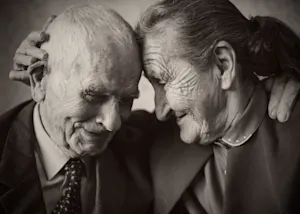What Makes This Word Tick
"Insouciance" rolls off the tongue with a whimsical flair, capturing a sense of breezy nonchalance. It's about having a light-hearted attitude toward life's stresses, evoking images of someone effortlessly carefree, like a feather dancing on the wind. While we might not all have the luxury of an insouciant lifestyle, the idea certainly is a charming aspiration.
If Insouciance Were a Person…
Imagine a person who strolls through life without a worry in the world, possibly wearing a beret tilted at just the right angle. This character might be found lounging in a café, sipping espresso with a carefree smile, oblivious to the hustle and bustle surrounding them. They epitomize the art of taking life as it comes, unruffled and serene.
How This Word Has Changed Over Time
Originally from the French word "insouciant," meaning "carefree," insouciance hasn't strayed far from its roots. It's maintained its essence of light-hearted disregard through the ages, allowing users of the word to savor its blissful implications regardless of the century. In today's world, it still serves as a delightful contrast to the often frenetic pace of modern living.
Old Sayings and Proverbs That Use Insouciance
While there may not be ancient proverbs that explicitly use the term “insouciance,” the spirit of the word is alive in sayings like “Don't worry, be happy.” And, as the French would say, "laissez-faire,” which implies a carefree, let-it-be attitude — a kindred spirit to insouciance.
Surprising Facts About Insouciance
Insouciance, though French in origin, is surprisingly versatile in English-speaking contexts, often used to describe a devil-may-care attitude in art, fashion, and even politics. It's a favored word among literary critics when discussing characters who embody a refusal to bend to societal pressures.
Out and About With This Word
In everyday conversation, “insouciance” might not be the most common guest, but when it makes an appearance, it leaves a memorable impression. You might hear it in self-help seminars, art classes, or among a group of friends at a book club discussing a character who just doesn’t sweat the small stuff.
Pop Culture Moments Where Insouciance Was Used
From movies to music, insouciance drifts into pop culture, often shaping the essence of a character or a moment. Think of characters like Ferris Bueller, who embodies insouciance with his carefree approach to the rules. In music, it's perhaps the attitude celebrated in Bobby McFerrin's hit "Don't Worry, Be Happy."
The Word in Literature
In literature, insouciance captures that quintessentially indifferent protagonist who strolls through the storyline with an effortlessly cool composure. It finds a home in novels by F. Scott Fitzgerald and others who depict characters reveling in the laissez-faire spirit of the Jazz Age.
Moments in History with Insouciance
If you look at the societal rebellions of the 1960s or the carefree vibes of the "Roaring Twenties," insouciance effectively captures the mood. It could easily describe the lighthearted defiance of flower children or the nonchalance of flappers breaking away from their parents’ conventions.
This Word Around the World
Globally, insouciance finds its linguistic relatives in seemingly laid-back cultures. Whether it’s Italy's “dolce far niente” — the sweetness of doing nothing — or the Spanish “despreocupado,” each captures a cultural appreciation for life’s more unburdened moments.
Where Does It Come From?
Borrowed from the French in the late 18th century, “insouciance” is formed from the prefix “in-” meaning “not” plus “souci” meaning “care” or “concern.” Thus, insouciance is the delightful state of not caring — in the best possible way.
How People Misuse This Word
Sometimes seen as a synonym for laziness, true insouciance is more about a light-hearted ease than inactivity. It’s not about shirking responsibilities; rather, it’s a graceful glide above the trivial worries that can bog one down.
Words It’s Often Confused With
Apathy: Lacks the light-hearted essence of insouciance, suggesting a deeper indifference.
Carefree: Close, but insouciance carries a more sophisticated flair.
Nonchalance: Similar, though nonchalance may imply a studied or affected indifference.
Additional Synonyms and Antonyms
Synonyms for insouciance might include "lightheartedness," "carefreeness," or "nonchalance," while antonyms could be "concern," "anxiety," and "worry."
Want to Try It Out in a Sentence?
Here's a charming sentence to toss around: "Despite the mounting pressure at work, she navigated her day with a charming insouciance that left others in awe and slightly envious."















